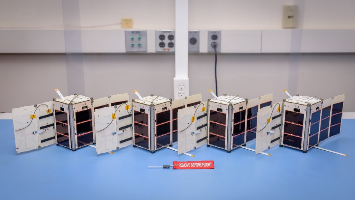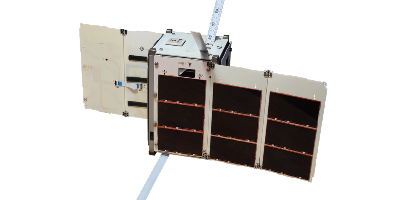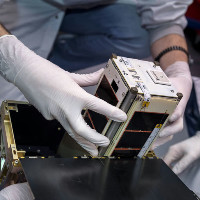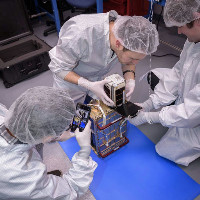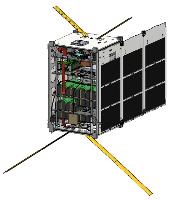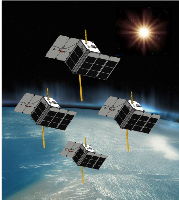| Satellite name | PY4 |
|---|---|
| Form factor | CubeSat |
| Units or mass | 3U |
| Organization | Carnegie Mellon University |
| Institution | University |
| Entity | Academic / Education |
| Country | US |
| Launch brokerer | Maverick |
| Oneliner | |
| Description | |
| Results | |
| Sources | [1] [2] [3] [4] [5] |
| Photo sources | [1] [2] [3] |
| Keywords | Globalstar or Iridium or Inmarsat |
Related Spacecraft
| Name | Status | Launcher | Date | Orbit |
|---|---|---|---|---|
| PY4 A (PY4 SV1, PY4-1) | Operational? (CubeSat Developers Workshop 2024 presentation as of May 2024 but last SatNOGS packets on 2024-07-03) | Falcon 9, (Transporter-10) | 2024-03-04 | 510 km, 97.5 deg |
| PY4 B (PY4 SV2, PY4-2) | Reentry 2025-04-02. Was operational? (CubeSat Developers Workshop 2024 presentation as of May 2024 but last SatNOGS packets on 2024-05-12) | Falcon 9, (Transporter-10) | 2024-03-04 | 510 km, 97.5 deg |
| PY4 C (PY4 SV3, PY4-3) | Operational? (CubeSat Developers Workshop 2024 presentation as of May 2024 but last SatNOGS packets on 2024-05-06) | Falcon 9, (Transporter-10) | 2024-03-04 | 510 km, 97.5 deg |
| PY4 D (PY4 SV4, PY4-4) | Operational? (CubeSat Developers Workshop 2024 presentation as of May 2024 but last SatNOGS packets on 2024-06-08) | Falcon 9, (Transporter-10) | 2024-03-04 | 510 km, 97.5 deg |
Last modified: 2025-04-25
